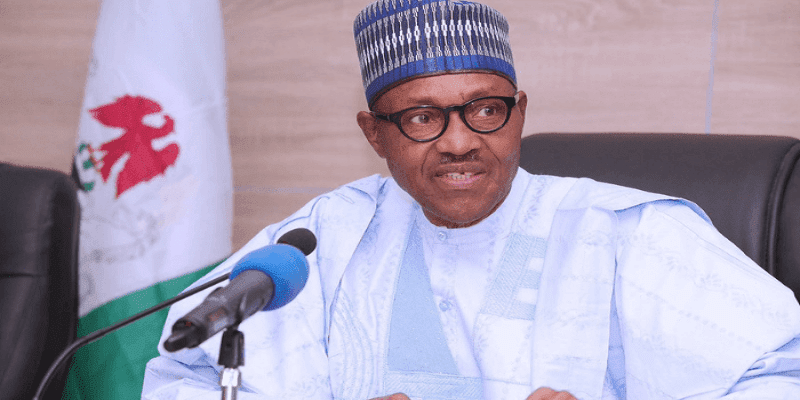Nigeria has become the latest major emerging economy to commit to achieving net-zero emissions after President Muhammadu Buhari told the COP26 Climate Summit the country would work to deliver net-zero by 2060.
Net zero-emission means ensuring that the amount of greenhouse gas produced is equivalent to what is removed from the atmosphere. This means that as carbon is being released, it is also being removed from the atmosphere such that emissions are reduced to zero in order to stabilize global temperatures.
While the West African nation’s pledge aligns with Saudi Arabia, China and Russia, the time frame lags other large economies such as the U.S., U.K., and European Union, which all aim to be net-zero by 2050.
Read Also: Billionaire Ned Nwoko divorces fifth wife, Moroccan, Laila
But it is still a decade earlier than India where Prime Minister Narendra Modi on Monday said the world’s third-biggest emitter will reach net-zero by 2070.
Significantly, the confirmation of Nigeria’s new long-term net-zero goal was accompanied by a pledge to cut emissions by 20 percent below “business as usual” (BAU) projections by 2030.
Buhari offered to increase the 2030 goal to a 47 cut below BAU if the country secures “financial assistance, technology transfer and capacity building from the more advanced and more willing international partners”.
Delivering his address at COP26 Leaders’ Summit, the president, according to a statement by presidential spokesman, Garba Shehu, said that attaining national and global climate change goals will require adequate and sustained technical and financial support to developing countries.
He said greater effort should be channelled towards assisting developing nations to meet their ‘‘Nationally Determined Contributions (NDCs) commitments through the pledges made by the developed countries to provide at least $100 billion yearly.’’
President Buhari noted that easier access to climate finance has become imperative in view of the COVID-19 pandemic, which really battered the economies of developing countries.
“For Nigeria, climate change is not about the perils of tomorrow but what is happening today. Nigeria is committed to net-zero by 2060,’’ he said.
Making a case for gas-based energy transition in Nigeria, President Buhari requested international partners to finance projects using transition fuels such as gas in Nigeria.
“Parties to the Paris Agreement are expected to transit from fossil fuel to clean energy and reach a net-zero ambition for greenhouse gases emission.
“Nigeria is actually more of a gas than an oil-producing country. Consequently, I am requesting for the financing of projects using transition fuels, such as gas.
“Nigeria has energy challenges for which, we believe, gas can be used to balance a renewable energy-based system, be it wind or sun. This would enable us launch the long-term renewable energy infrastructure procurements and investments needed to have a sustainable energy supply,’’ he added.
Acknowledging that net-zero ambition can lead to economic transformation across all sectors, the Nigerian leader said it would require critical infrastructure to be in place.
Read Also: Germany intends to return Benin bronzes to Nigeria
President Buhari also told the COP26 Leaders’ Summit that Nigeria has developed a detailed energy transition plan and roadmap based on data and evidence.
He explained that the plan has highlighted some key facts that force the difficult conversations.
“Our transition plan also highlights the key role that gas will play in transitioning our economy across sectors, and the data and evidence show that Nigeria can continue to use gas until 2040 without detracting from the goals of the Paris Agreement.
‘‘Gas will be key for addressing the clean cooking challenge, which is also a challenge of deforestation, and for giving our electric grid the stability and flexibility to integrate renewables at scale. Nigeria will need to integrate an unprecedented 7GW additional renewable capacity each year to achieve net-zero,’’ he said.
On energy access, President Buhari declared that Nigeria’s commitment to a just transition was reflected in ‘‘our ambitious Energy Compact, which includes the Government’s flagship project to electrify 5million households and 25 million people using decentralized solar energy solutions.’’
He described the project as a major first step towards closing energy access deficit in the country by 2030.
On green projects in the county, the President declared that Federal Government agencies have been directed to ensure the inclusion of projects with Climate Change credentials in the budget.
‘‘I am happy to state that the 2022 budget, which I recently submitted to our National Assembly, is the first cross-sectorial, gender and climate-responsive budget ever prepared in the annals of our history,” Buhari said.
